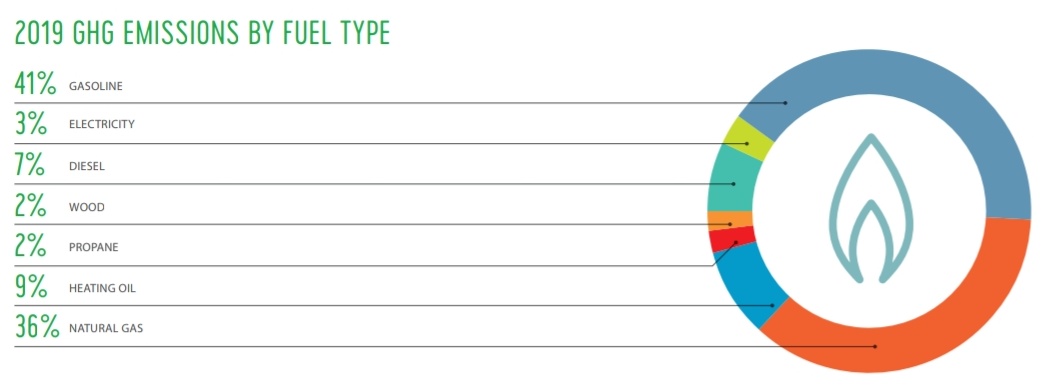
Some claim BC cities and towns can't accelerate the shift from fossil fuel to electric heating in new houses and other buildings because they lack the powers in the Vancouver Charter.
This is wrong. And leading municipalities are showing the way. 🧵 1/n #ClimateAction #yyj
This is wrong. And leading municipalities are showing the way. 🧵 1/n #ClimateAction #yyj

Houses and other buildings built today will be here for decades, locking in any #GHG emissions from fossil fuel heating. Some are still being built with methane "natural" gas heating, which is responsible for a lot of GHGs. (#VictoriaBC example). 2/n 

Gas heating also leaves a financial risk to future building owners and occupants, as costs of gas will rise with carbon pricing over coming years.
So what can BC cities and towns do to help accelerate the shift to clean electricity? 3/n
So what can BC cities and towns do to help accelerate the shift to clean electricity? 3/n
Answer: adopt a low-carbon pathway bylaw. Several have done so, or are doing it now - District of North Vancouver, City of North Vancouver, Richmond, West Vancouver, City of Victoria among them.
How does it work?
4/n
How does it work?
4/n
BC municipalities can adopt the BC Energy Step Code. The Code has five levels of improved energy efficiency for new builds. The Code does not require low carbon heating, but just energy efficiency. energystepcode.ca
5/n
5/n
However, municipalities can exempt new builds from higher (and more costly) levels if they employ a low carbon system, eg. electric heat pump, which is efficient and can cool in the summer. The District of North Vancouver low carbon pathway came into effect this summer. 6/n 

The low carbon pathway using the Energy Step Code is quickly being taken up by BC municipalities that want to reduce GHG emissions. Is your local council exploring it? If not, do they *really* want to reduce GHG emissions? Or are they making excuses? 7/7 #ClimateAction
@threadreaderapp unroll
• • •
Missing some Tweet in this thread? You can try to
force a refresh



